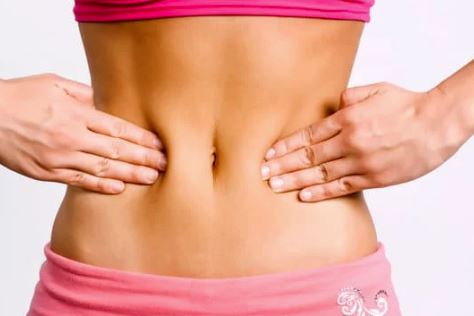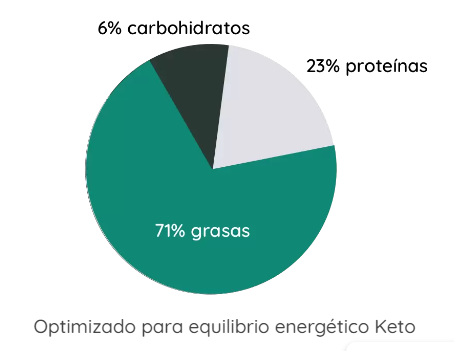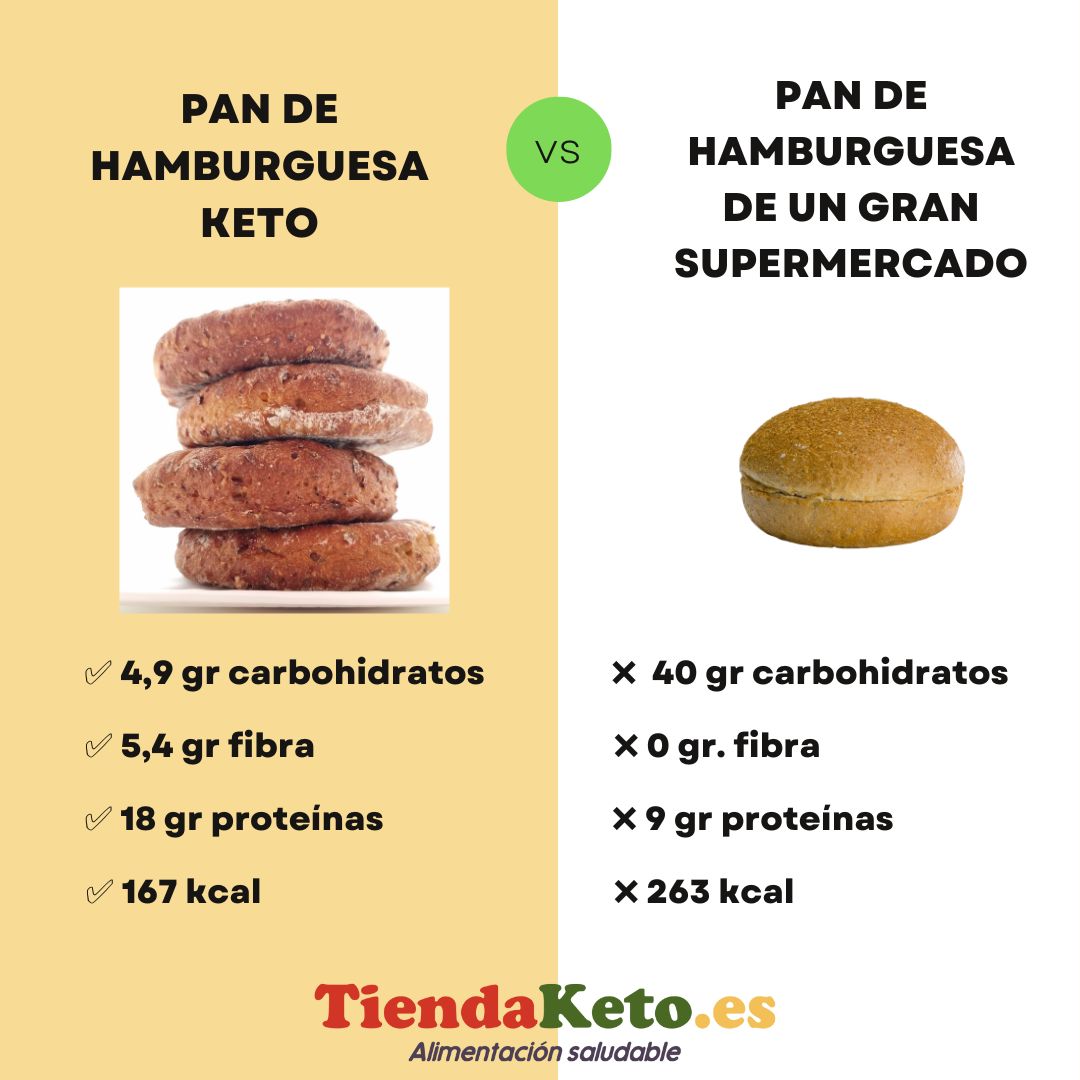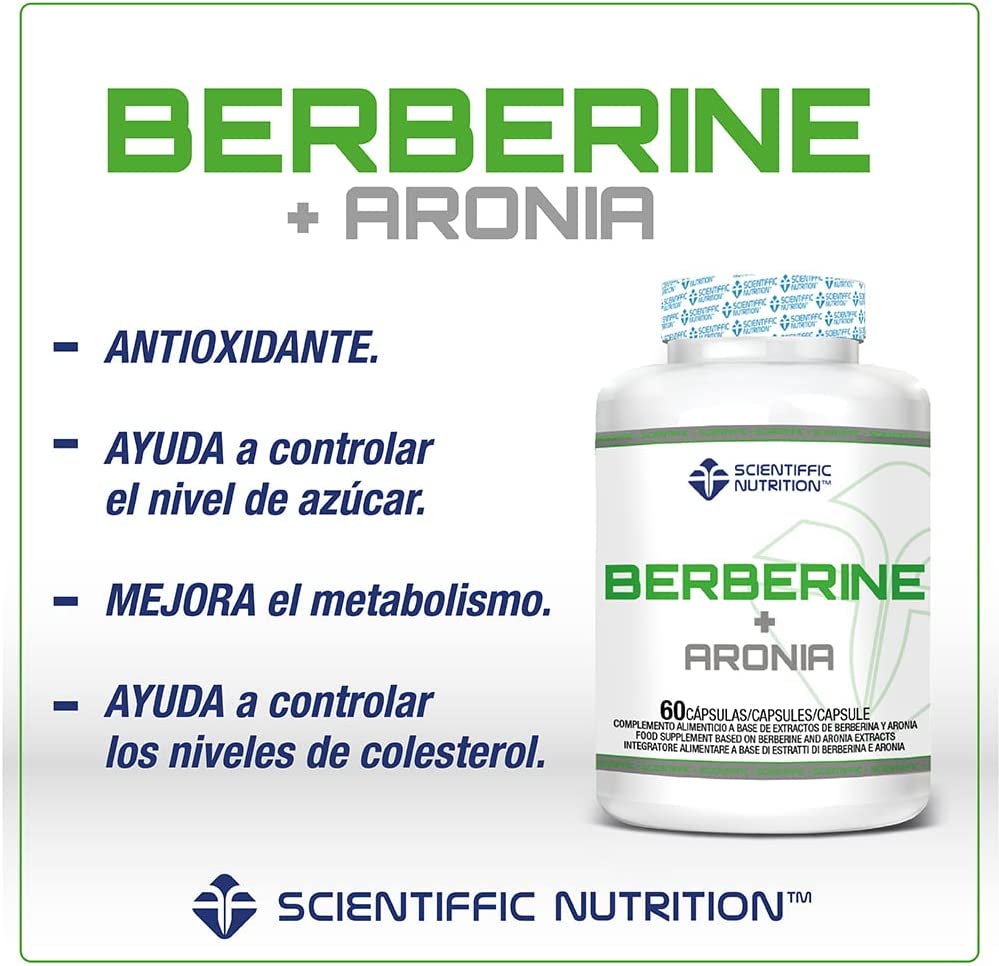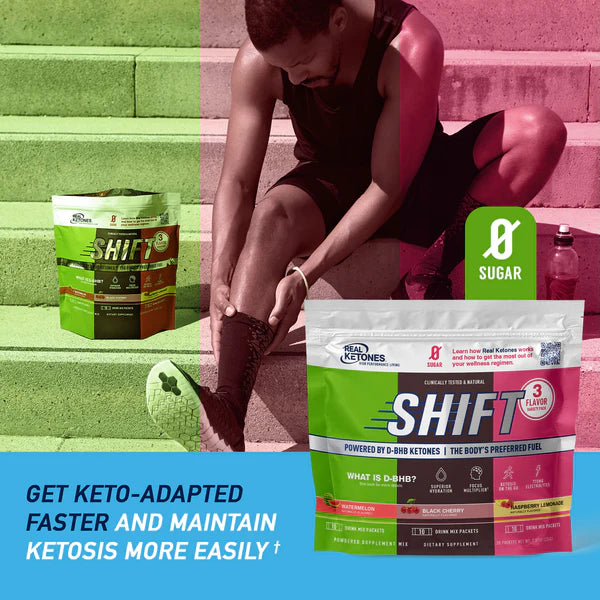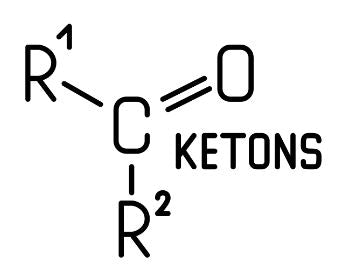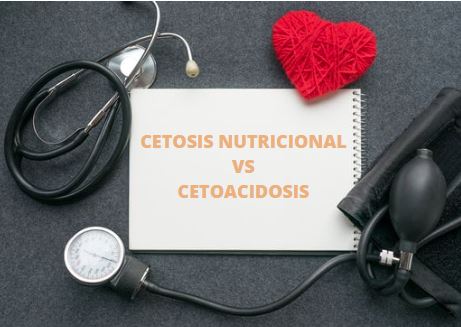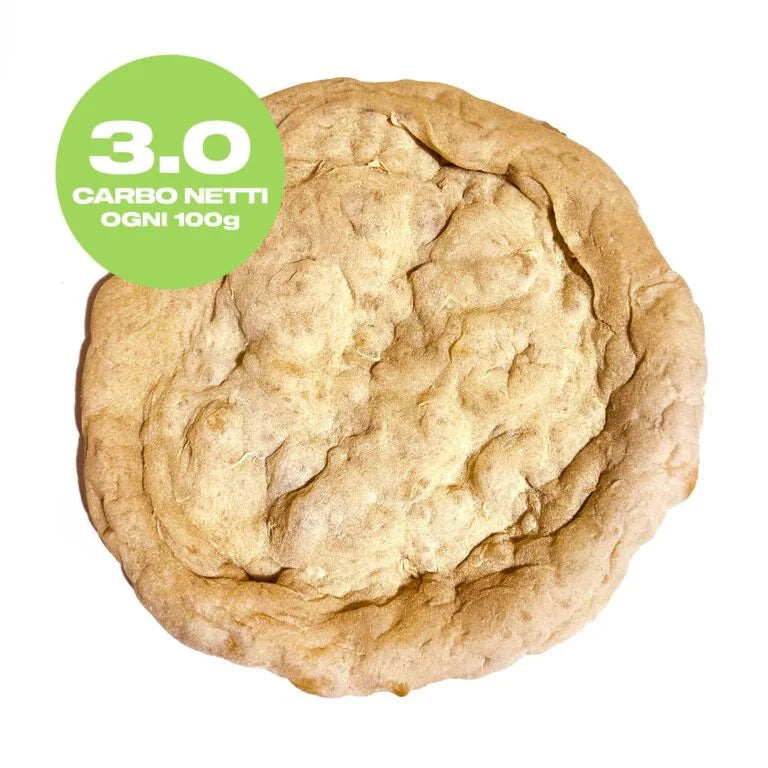Keto Information
Keto Information
How to Start a Ketogenic (Keto) Diet
The basic principles of the ketogenic diet are as follows: Carbohydrate Reduction: The ketogenic diet involves a drastic reduction in carbohydrate intake, typically limiting them to around 5-10% of total calories. This forces the body into a metabolic state called ketosis, in which it burns fat instead of carbohydrates as its primary source of energy. High in Fat: The ketogenic diet is rich in healthy fats , which should make up about 70-75% of your total calories. These fats can come from sources like avocados, olive oil, coconut oil, nuts, and butter. Moderate Protein: Protein typically makes up about 20-25% of total calories on a ketogenic diet. It's important not to overindulge in protein, as this can make it difficult to enter ketosis. Controlled Calorie Intake: Although this is not a diet based on calorie restriction, it is important to control portions and maintain a balance between calories consumed and individual needs. Weight loss, if a goal, is achieved through a calorie deficit. Approved Foods: Here you can find a list of foods allowed and prohibited on keto. Avoid Sugars and Starches: Added sugars and starchy foods such as bread, pasta, rice, potatoes, and sugary products should be completely avoided. Fruit and Legume Control: Fruits and legumes, which contain carbohydrates, should be consumed in moderation. If possible, eat only berries and forest fruits. Hydration and Electrolytes: Drinking enough water and ensuring you maintain your electrolyte levels like sodium, potassium, and magnesium is essential to preventing dehydration and the "keto flu." Monitoring Ketosis: Many people on a ketogenic diet use urine ketone test strips or a blood ketone meter to ensure they are in ketosis, the state in which the body burns fat for fuel. Medical Supervision: It's important to note that the ketogenic diet may not be suitable for everyone, and it's recommended to consult a healthcare professional before starting, especially if you have pre-existing medical conditions. On our keto blog you will find weekly keto menus so you can start your diet right away.
Read moreHow to calculate the net carbs of a product
Calculating a product's net carbs involves subtracting indigestible carbs (like fiber) and polyols (sugar alcohols) from the total carbs. This will give you the amount of carbs that will actually affect your blood sugar levels or that you'll need on a low-carb diet, like the ketogenic diet. Here are the steps to calculate net carbs: Gather Nutrition Facts: Find the nutrition label for the product you want to calculate. This label provides information about total carbohydrates, dietary fiber, and polyols. Identify Total Carbohydrates: Look for the "Total Carbohydrates" section on the nutrition label and write down the amount in grams. This represents the total carbohydrates present in the product. Identify Dietary Fiber: Look for the "Dietary Fiber" section on the nutrition label and write down the amount in grams. Dietary fiber is an indigestible carbohydrate and is subtracted from the total carbohydrates. Identify Polyols: Look for the "Polyols" or "Sugar Alcohols" section on the nutrition label and write down the amount in grams. Polyols are also indigestible carbohydrates and are subtracted from the total carbohydrates. Calculate Net Carbs: Subtract the amount of dietary fiber and polyols from the total carbs to get the net carbs. Net Carbohydrates = Total Carbohydrates - Dietary Fiber - Polyols For example, if a product has 20 grams of total carbohydrates, 5 grams of dietary fiber, and 3 grams of polyols: Net Carbs = 20 grams - 5 grams (fiber) - 3 grams (polyols) = 12 grams of net carbs. So, in this case, the product would have 12 grams of net carbs per serving. These are the carbs that would have a significant impact on blood sugar levels or that you would count on a low-carb diet. Keep in mind that it can never be negative. If this is the case, it's quite possible that the polyols or fiber have already been subtracted. To find out, we just have to see if the polyols and fiber are broken down under carbohydrates. That means they should be subtracted.
Read moreWhy isn't the keto diet working for me?
The effectiveness of the ketogenic diet can vary from person to person due to several factors. Here are some reasons why the keto diet might not be working for you: Lack of proper tracking : To enter ketosis, it's important to maintain strict macronutrient control, especially limiting carbohydrate intake to less than 5–10% of your daily calories. If you're not carefully tracking your food intake, you could be consuming more carbohydrates than you think. Not being in ketosis : Ketosis is the metabolic state in which the body primarily burns fat for energy instead of carbohydrates. If you consume too many carbohydrates or protein , or if you eat foods that contain hidden carbohydrates, you may not enter or maintain ketosis. Adherence Issues: The keto diet can be difficult to follow due to carbohydrate restrictions, which can lead to non-adherence. If you can't maintain the diet long-term, you may not see sustainable results. Macronutrient imbalance: Although the keto diet focuses on carbohydrate restriction, it's also important to get enough healthy fats and protein. An imbalance in the ratio of these macronutrients can negatively impact your progress. You can find all kinds of fresh keto foods at your local supermarket. To find a variety of keto products , you can visit the keto store , which ships to all of Europe within 24-48 hours. There, you'll also find keto packs to make your daily life easier. Underlying medical conditions : Some medical conditions can make it difficult for your body to enter ketosis or lose weight. If you have medical conditions, such as thyroid issues or insulin resistance, it may be more difficult to see results on the keto diet without proper medical supervision. Unrealistic expectations : The keto diet is not a quick fix for weight loss. Although some people experience significant weight loss initially, this may slow over time . It's important to have realistic expectations about results and understand that weight loss varies from person to person. Lack of physical activity: The keto diet may work best when combined with regular physical activity . If you're not exercising or maintaining an active lifestyle, you may see slower weight loss results. If the keto diet isn't working for you, it's important to consider these factors and possibly consult a healthcare professional or registered dietitian for personalized guidance, such as Belén Madrigal. The macronutrients (macros) in the ketogenic diet , or keto diet, are designed to induce and maintain a state of ketosis, where the body burns fat as its primary source of energy instead of carbohydrates. The macros in a typical keto diet are typically as follows: Fats: Fats are the most important part of a keto diet, as they provide the majority of calories and are essential for maintaining ketosis. Approximately 70–75% of your daily calories should come from fats. This includes healthy sources of fats, such as olive oil, avocados, nuts, seeds, and coconut oil. Protein : Protein intake on a keto diet is typically moderate. You should consume approximately 20–25% of your daily calories from protein. This includes foods like lean meat, fish, eggs, low-carb dairy products, and tofu. Carbohydrates : Carbohydrates are very restricted on a keto diet, limited to approximately 5–10% of your daily calories. This typically translates to around 20–50 grams of net carbs per day. Net carbs are calculated by subtracting fiber from total carbs, as fiber doesn't significantly affect blood sugar levels.
Read moreBenefits of digestive enzymes
Digestive enzymes are substances the body naturally produces to break down food into simpler nutrients the body can absorb and utilize. These enzymes play a key role in digestion and proper nutrient absorption. Here are some potential benefits associated with digestive enzyme supplementation : Improved nutrient digestion : Digestive enzymes help break down food into simpler nutrients, such as carbohydrates, proteins, and fats. This makes it easier for the body to absorb nutrients, which can lead to improved nutrition and optimal functioning of body systems. Digestive Symptom Relief : People who experience bloating, gas, indigestion, and stomach upset after meals may find relief by supplementing with digestive enzymes. These enzymes help break down food more efficiently, reducing the burden on the digestive system. Support for People with Specific Medical Conditions : Individuals with medical conditions that affect digestive enzyme production, such as pancreatic insufficiency or celiac disease, may benefit from enzyme supplementation. This allows them to digest and absorb nutrients more effectively. Help with Digesting Difficult Foods : Some people have difficulty digesting certain types of foods, such as dairy products or high-fiber foods. Digestive enzymes can help break down these foods more efficiently and reduce associated symptoms. Improved quality of life : By reducing uncomfortable digestive symptoms, digestive enzyme supplementation can improve overall quality of life. People may feel more comfortable after meals and have a more pleasant digestive experience. Facilitates postoperative recovery : After certain surgical procedures involving the digestive system, digestive enzyme supplementation may help facilitate recovery by easing the burden on the digestive system and improving the absorption of essential nutrients. Supporting Gut Health : An efficient digestive system contributes to a healthy gut environment, which can have positive effects on overall health and the immune system. At the keto store, you'll find digestive enzymes with Digezymex , a proprietary blend of digestive enzymes derived from microbial sources that can help improve the digestion process. It helps break down proteins, fats, and carbohydrates to support digestive health. You can buy your digestive enzymes with Digezymex HERE .
Read moreThe Benefits and Challenges of a Low-Carb Diet
In the world of nutrition, the low-carb diet has captured the attention of many people looking to improve their health and lose weight. This way of eating is based on reducing carbohydrate intake and increasing the proportion of fat and protein in the diet. As more individuals explore this approach, it is important to understand both its benefits and the challenges it can present. The Benefits: 1. Effective Weight Loss: One of the most common reasons people adopt a low-carb diet is its ability to promote weight loss. By limiting carbohydrates, the body is encouraged to use stored fat as its primary source of energy. This can lead to weight loss and a decrease in body fat. 2. Blood Sugar Stabilization: Low-carb diets can be especially helpful for people with type 2 diabetes or prediabetes. By reducing carbohydrate intake, blood sugar spikes are minimized, which can help control glucose levels and improve insulin sensitivity. 3. Appetite Control: The proteins and healthy fats present in low-carb diets can generate a longer-lasting feeling of satiety than refined carbohydrates. This can help reduce cravings and overeating. 4. Improved Health Markers: Studies have suggested that low-carb diets may have a positive impact on triglyceride levels, increase HDL cholesterol (known as "good cholesterol"), and lower blood pressure in some people. The Challenges: 1. Initial Effects: When starting a low-carb diet, some people may experience what's known as the "keto flu." This includes symptoms such as fatigue, headaches, dizziness, and nausea. These effects are usually temporary and are due to the body adapting to a new type of fuel. 2. Nutrients and Variety: Reducing your carbohydrate intake can make it difficult to get enough vitamins, minerals, and fiber. It's important to select a variety of nutrient-dense foods, such as leafy green vegetables, nuts, and lean protein sources. 3. Long-Term Maintenance: For some people, maintaining a low-carb diet over time can be challenging. Restricting certain foods can lead to monotony and make long-term adherence difficult. 4. Individualization: There's no one-size-fits-all diet. What works for one person may not be right for another. It's essential to listen to your body and adjust your diet according to your personal needs and goals. In conclusion, a low-carb diet can offer significant benefits, such as weight loss, blood sugar control, and improved health markers. However, it also presents challenges that must be carefully addressed, such as ensuring adequate nutrient intake and considering individualization. Before embarking on this approach, it is advisable to consult a health professional (highly recommended Belén Madrigal ) to ensure it is suitable for your particular needs and conditions. As with any dietary change, the key is moderation, balance, and informed decision-making. You can start with a KETO STARTER PACK like this one from tiendaketo.es !
Read moreTricks to get into ketosis
Ketosis is a metabolic state in which the body burns fat as its primary source of energy instead of carbohydrates. To enter ketosis, a low-carb, moderate-protein, and high-fat diet is typically followed. Here's a list of some tips and tricks to help you get into ketosis effectively: Ketogenic Diet: Follow a ketogenic diet that limits your carb intake to about 20–50 net grams per day. The exact amount can vary from person to person, but this range is generally effective for inducing ketosis. Healthy fats: Make sure you get enough healthy fats, such as avocados, coconut oil, olive oil, nuts, and seeds. These fats will provide the energy you need during ketosis. Moderate protein: Control your protein intake to avoid excess, as excessive protein consumption can be converted into glucose through a process called gluconeogenesis and decrease ketosis levels. Avoid sugars and refined carbohydrates: Eliminate sugars and refined carbohydrates from your diet, such as white bread, pasta, and processed foods that are high in sugar. Intermittent Fasting: Try intermittent fasting to speed up your ketosis process. This involves limiting your food intake to a specific window during the day. Hydration: Make sure you drink enough water to stay hydrated. Ketosis can increase the excretion of water and minerals, so staying well hydrated is essential. Exogenous ketone supplements: Exogenous ketone supplements, such as ketone salts or esters, can help raise blood ketone levels and speed up the process of entering ketosis. Find them HERE Exercise: Incorporate physical activity into your daily routine to improve insulin sensitivity and increase fat burning, which can make it easier to enter ketosis. Ketone monitoring: Use blood, urine (like this one) , or breath ketone tests to check if you're in ketosis. This will allow you to adjust your diet and habits as needed. Rest and stress reduction: Chronic stress and lack of sleep can negatively affect the ketosis process. Prioritize rest and find ways to reduce stress in your life.
Read moreProperties and contraindications of berberine, the "natural ozempic"
Berberine and aronia are two natural compounds that have been studied for their potential health benefits. There are many articles like this one where you can see how berberine can help you lose weight. Below is information about each of them: Berberine: Berberine is an alkaloid found in several plants, such as the bark of Berberis trees and the root of the goldenseal plant. It has been traditionally used in Chinese and Ayurvedic medicine for its medicinal properties. Some possible benefits of berberine include Antioxidant Properties: Berberine exhibits antioxidant activity, meaning it can protect cells from damage caused by free radicals and reduce oxidative stress in the body. This may contribute to chronic disease prevention and healthy aging. Anti-inflammatory effect: Berberine has anti-inflammatory properties, meaning it can reduce inflammation in the body. Chronic inflammation is associated with various diseases, such as heart disease, diabetes, and certain types of cancer. Berberine may help reduce inflammation and promote overall health. Hypoglycemic effect: Berberine has been shown to have beneficial effects on blood glucose control. It has been observed to improve insulin sensitivity, promote glucose metabolism, and reduce blood sugar levels. This makes it a potential option for managing type 2 diabetes. Effect on metabolism and weight loss: Berberine may influence lipid and carbohydrate metabolism, which may help regulate body weight. Furthermore, berberine has been observed to reduce fat accumulation in the liver and promote thermogenesis, which could contribute to weight loss. Effect on cardiovascular health: Berberine has shown potential benefits for cardiovascular health. It has been observed to reduce levels of total cholesterol, LDL ("bad") cholesterol, and triglycerides. It may also improve endothelial function and reduce blood pressure, which may help maintain heart health. It should be noted that studies on berberine are mostly preclinical and preliminary clinical, and further research is still needed to fully understand its mechanisms of action and benefits in various health conditions. It is always advisable to consult with a healthcare professional before starting berberine supplementation. Blood Glucose Control : Berberine may help improve insulin sensitivity and promote glucose metabolism, making it a promising supplement for managing type 2 diabetes. Cardiovascular Support: Berberine has been shown to help reduce total cholesterol, LDL ("bad") cholesterol, and triglyceride levels, as well as improve endothelial function, which may benefit cardiovascular health. Anti-inflammatory and antioxidant properties: Berberine has shown anti-inflammatory and antioxidant effects in laboratory studies, which could have implications for cell protection and reduction of oxidative stress. You can buy BERBERINE here Aronia: Aronia, also known as "blackberry" or "chokeberry," is a fruit native to North America and Eastern Europe. It contains several beneficial compounds, such as antioxidants, vitamins, and minerals. Some benefits associated with aronia include: High antioxidant content: Aronia is rich in antioxidants, such as anthocyanins, polyphenols, and vitamin C, which help combat oxidative stress in the body, protect cells from damage, and promote overall health. Potential anti-inflammatory effect: Compounds present in aronia may have anti-inflammatory properties, which could contribute to reducing inflammation in the body. Cardiovascular Health: It has been suggested that aronia may help maintain cardiovascular health by improving endothelial function, reducing blood pressure, and lowering LDL cholesterol levels. It's important to note that berberine can interact with certain medications, so it's advisable to consult a healthcare professional before starting use. Diabetes medications: Berberine may enhance the effects of medications used to treat diabetes, such as insulin or oral hypoglycemic agents. This may lead to excessively low blood sugar levels (hypoglycemia). If berberine is taken with these medications, it is important to monitor glucose levels regularly and adjust the medication dosage as directed by your doctor. Blood pressure medications: Berberine may have a hypotensive effect, meaning it can lower blood pressure. If taken with blood pressure medications, such as angiotensin receptor blockers (ARBs) or angiotensin-converting enzyme inhibitors (ACE inhibitors), the hypotensive effect may increase. This can cause blood pressure that is too low (hypotension). Medical supervision and dose adjustment are recommended if these medications are taken with berberine. Medications metabolized by the CYP3A4 enzyme: Berberine may inhibit the activity of the CYP3A4 enzyme in the liver, which is responsible for the metabolism of many medications. This may increase blood levels of medications metabolized by this enzyme, which may increase the risk of side effects. Examples of medications metabolized by CYP3A4 include certain antidepressants, antifungals, statins, and calcium channel blockers. If these medications are taken with berberine, it is important to consult a doctor about adjusting the dosage or considering alternatives.
Read moreDiscover the Keto Diet: A Diet Plan to Transform Your Body
Are you looking for an effective way to lose weight and improve your overall health? The ketogenic diet, or keto diet, could be the answer you're looking for. This diet has become increasingly popular in recent years due to its surprising results. What is the Keto Diet? The keto diet is an eating approach that focuses on drastically reducing carbohydrate intake and increasing healthy fats. By doing so, your body enters a metabolic state called ketosis , where it uses stored fat as its primary source of energy instead of carbohydrates . This transition to fat burning can lead to significant weight loss and other health benefits. Here are some keto products that can help you adhere to the diet. Here's a sample weekly keto menu to help you get started on the keto diet. Remember, you can customize it to your individual preferences and needs. Monday: Breakfast: Scrambled eggs with avocado and spinach sautéed in olive oil. Lunch: Grilled chicken salad with lettuce, tomato, cucumber, olive oil, and vinegar. Dinner: Baked salmon with lemon butter and asparagus. Tuesday: Breakfast: Spinach and cheddar cheese omelet. Lunch: Tuna salad with low-carb mayonnaise and mixed greens. Dinner: Baked chicken with steamed broccoli and garlic butter. Wednesday: Breakfast: Protein shake with coconut milk, spinach, and almond butter. Lunch: Grilled beef steak with bacon-wrapped asparagus. Dinner: Shrimp salad with avocado, olive oil, and lemon. Thursday: Breakfast: Cheese and mushroom omelet. Lunch: Roasted turkey breast with kale sautéed in coconut oil. Dinner: Ground beef sautéed with peppers, onions, and spices. Friday: Breakfast: Unsweetened Greek yogurt with chopped walnuts and chia seeds. Lunch: Smoked salmon salad with avocado, arugula, and lemon olive oil dressing. Dinner: Lettuce tacos with pulled pork, guacamole, and low-carb sour cream. And if you want more information, check out our ebook section. We have some free keto ebooks to get you started today!
Read moreAll the information about Real Ketones BHB exogenous ketones
What is ketosis? Ketosis is the natural metabolic state in which your body uses ketones as its primary energy source. The average keto dieter consumes 75% to 80% of their calories from fat, 15% to 20% from protein, and less than 5% from carbohydrates. When you restrict carbohydrate intake, your liver breaks down fat cells and transforms them into ketones, which your body then uses to replace glucose for fuel. Ketones generate 225% more energy than glucose and produce 45 times fewer free radicals than glucose! Free radicals are unstable atoms that damage cells, causing disease and aging. Health benefits of the keto diet include: Weight loss Prolonged and sustained energy Greater focus and mental clarity Appetite control Improved blood sugar and insulin balance Longevity Build lean muscle, while burning fat The process of switching your body's fuel source from glucose to ketones can take weeks, but Real Ketones provides the clinically proven products that kick-start ketosis and keep you in ketosis, even when your body can't handle it on its own. We have the only D-BHB formula in the world that achieves sustained, long-lasting ketosis. How do exogenous ketones work? When you consume exogenous ketones, your blood ketone levels will increase regardless of whether you are in a state of nutritional ketosis. Interestingly, this increase actually provides many of the benefits of true ketosis, including appetite regulation, increased energy, brain function, athletic performance, stress reduction, and even weight loss. It doesn't give us permission to eat whatever we want full-time or switch to a permanent high-carb diet, but what it does do is provide an incredible bridge and act as a supportive tool for a healthy lifestyle without having to be rigid all the time. How to use exogenous ketones for weight loss? Consume 1 serving of exogenous ketones in the morning to start your day with energy If you're in the early stages of transitioning to ketosis, definitely consider a second serving for more energy, focus, and reduced mid-afternoon cravings . This also applies to people who want to avoid the 2 p.m. crash and have plenty of energy throughout the day. If you're training or participating in any type of physical activity, you can time your second serving of exogenous ketones to coincide with this activity as a pre-workout booster . Take them about 30 minutes before your activity. We also recommend using exogenous ketones as a lifeline in case of an emergency glass breakage. This is for those times when you know a dinner or specific event could knock you out of ketosis. Because life happens. So take a packet before that dinner/lunch to serve as a situational tool, bridging the gap and ensuring you don't fall out of ketosis due to the increase in blood ketones. Take exogenous ketones on an empty stomach: For best results, it is common to take exogenous ketones on an empty stomach, preferably in the morning. How long does it take to get into ketosis? Naturally, it can take up to 2 weeks for your body to enter a stable state of ketosis through diet alone. Real Ketones products help elevate and maintain ketosis, which accelerates your adaptation! You'll notice the benefits of ketosis within the same day. Top reasons why exogenous ketones can benefit you: 1. They replicate nutritional ketosis The primary goal of exogenous ketones is to replicate a state of nutritional ketosis. A common misconception is that exogenous ketones can put you in a permanent state of ketosis on their own. The reality is that they temporarily raise the levels of ketones in your bloodstream, which also, in turn, gives you many of the benefits of nutritional ketosis, just like any other day eating keto and being in ketosis. By increasing the ketones in your system, these supplements can: Supercharge your energy Boost mental clarity and focus Support weight loss in several ways. 2. They help you transition to ketosis Exogenous ketones absolutely help support keto flu symptoms, even if they don't directly affect nutritional ketosis. The Science Behind Ketosis Weight Loss The studies In The Journal of Nutrition, they confirm the successful use of ketosis for weight loss. Our own clinical trials They found many benefits to using exogenous ketones for weight loss , including: 5X more kilos of fat lost 5X greater increase in lean-to-fat ratio Our double-blind, placebo-controlled clinical study also discovered other crucial benefits, including: 9% improvement in reaction speed 40% reduction in normal stress response 9% reduction in normal LDL cholesterol levels 35% improvement to normal insulin levels How to drink ketones to lose weight Drinking ketones for weight loss is easy. It is best to consume one ketone drink for weight loss in the morning when you get up . You may also find it helpful to have a second serving mid-afternoon to help suppress cravings, boost energy, and improve focus. A ketone drink for weight loss is most successful when you follow a low-carb, high-fat diet, exercise appropriately, manage your stress, and get enough sleep. Buy the best exogenous ketones on the market for weight loss today SHIFT D-BHB Exogenous Ketone Drink Mix Powder Packets from Real Ketones They provide five grams of pure D-BHB ketones along with sugar-free electrolytes in a delicious drink you'll look forward to every day. Use our exogenous ketones for weight loss and enjoy the energy boost, appetite suppression, and focus they provide so you can feel the benefits of ketosis faster than diet alone. We make Keto easy. Intermittent fasting. Keto diet. Careful meal planning. There are several ways to get your body to produce ketones, none of which are particularly easy. But with Real Ketones' multi-patented, clinically proven D-BHB formula, you can simply enjoy your favorite flavor and experience countless benefits: appetite suppression stress and anxiety control physical reaction time mental focus mood memory dream fat loss
Read moreWhat is creatine? Does creatine help with weight loss? How do I take it?
Creatine is a natural compound produced by the human body and found in muscles and certain foods, such as meat and fish. Creatine is used as an energy source during high-intensity, short-duration physical activities, such as weightlifting or sprinting. HERE YOU'LL FIND THE BEST CREATINE AT THE BEST PRICE Creatine supplementation helps improve the body's ability to produce energy during exercise, which can increase muscle strength and power, as well as endurance. In addition, creatine also helps reduce muscle fatigue and improve recovery after exercise. When it comes to weight loss, creatine helps increase muscle mass, which in turn helps speed up metabolism and increase resting calorie expenditure . Additionally, creatine helps reduce fluid retention , which can give the appearance of greater weight loss. Overall, creatine is a safe and effective supplement for improving physical performance and muscle recovery, but it should not be used as a long-term weight loss solution. Buy your creatine here. How to take creatine? If you decide to take creatine as part of your training regimen, the most effective way to do so is to take it in a daily dose of between 3 and 5 grams. Creatine can be taken at any time of day, but it is recommended to take it after training to aid in muscle recovery and protein synthesis. It's also important to make sure you drink enough water when taking creatine, as it can increase your body's need for hydration. Who is creatine recommended for? In general, creatine is recommended for those who perform strength training or high-intensity, short-duration sports, such as weightlifting, short runs or sprints, high-intensity training (HIIT) , among others. It can also be beneficial for those looking to improve body composition, increase muscle mass, reduce muscle fatigue, improve recovery after exercise, and enhance overall physical performance.
Read moreAll the information about exogenous ketones for weight loss
Exogenous ketones are a dietary supplement used to increase blood ketone levels and thus mimic the effects of ketosis, a state in which the body burns fat instead of carbohydrates for energy . Some of the potential benefits of taking exogenous ketones include: Weight Loss: By mimicking the state of ketosis, exogenous ketones burn fat and reduce appetite, which can lead to weight loss. Improved athletic performance: Some studies suggest that exogenous ketones may improve physical performance and delay fatigue during exercise. Improved cognitive function: Exogenous ketones improve cognitive function in people with neurological disorders such as Alzheimer's disease or epilepsy. Reducing inflammation: Exogenous ketones reduce inflammation in the body, which can have overall health benefits. HERE you can buy them How to take exogenous ketones for weight loss: Combine exogenous ketones with a ketogenic diet: A ketogenic diet is a low-carb, high-healthy-fat diet that can help increase endogenous ketone production. By combining exogenous ketones with a proper ketogenic diet, you can maximize ketone production and enhance the effectiveness of the benefits of ketosis, including weight loss . Take exogenous ketones on an empty stomach: Taking exogenous ketones on an empty stomach can help increase endogenous ketone production and improve the effectiveness of exogenous ketones for weight loss. Additionally, taking exogenous ketones on an empty stomach can also help control appetite and reduce cravings. Take exogenous ketones before exercise: Taking exogenous ketones provides an additional source of energy for your muscles during exercise, as it uses your fat as an energy source. Exercise also helps increase endogenous ketone production, which improves the effectiveness of exogenous ketones. Start with a low dose: If you are new to taking exogenous ketones, it is important to start with a low dose and gradually increase the amount. Consult a healthcare professional: Before starting to take exogenous ketones for weight loss, it is important to speak with a healthcare professional to ensure they are safe and appropriate for your individual situation. Difference between common ketone salts on the market and B-DHB ketones (ours): Exogenous ketones are available in two main forms: ketone salts and D-BHB ketones. The main difference between them lies in how they occur in the body and how they are metabolized. Ketone salts are composed of a D-BHB ketone (beta-hydroxybutyrate) bound to a mineral such as sodium, calcium, or magnesium. Ketone salts are more soluble in water than D-BHB ketones, making them easier to mix with beverages. When ingested, ketone salts dissociate into their individual components, releasing the D-BHB ketone and the corresponding mineral. Because minerals can have side effects in large quantities, it's important to be cautious when taking ketone salts. D-BHB ketones , on the other hand, are pure forms of exogenous ketones and are not bound to any minerals. When consumed, they are converted into energy through mitochondrial oxidation and used directly by the body as fuel. D-BHB ketones are more stable than ketone salts and have been shown to produce higher levels of ketones in the blood than ketone salts. In short, the main difference between ketone salts and D-BHB ketones is that ketone salts are bound to minerals and dissociate into their individual components when consumed, while D-BHB ketones are a pure form of exogenous ketones that are used directly as fuel by the body. Remember that sustainable weight loss requires a comprehensive approach that includes a healthy diet, regular exercise, and adequate rest and sleep. Exogenous ketones are helpful for improving results and achieving them faster , but they shouldn't be the only tool you use.
Read moreDifference between ketosis and ketoacidosis
Nutritional ketosis and ketoacidosis are two different physiological states that involve the production of ketone bodies, which are an alternative source of energy for the body when there is a shortage of available glucose. Nutritional ketosis occurs when a person follows a diet low in carbohydrates and high in fat and protein, which can lead to increased levels of ketones in the blood. This form of ketosis is safe and natural and can aid in weight loss and improved metabolic health. On the other hand, ketoacidosis is a serious medical condition that occurs when the body produces too many ketone bodies and cannot get rid of them quickly enough. This can happen in people with type 1 diabetes and, rarely, in people with type 2 diabetes, when blood glucose levels are very high and there isn't enough insulin to move it into the cells for use as energy. In short, nutritional ketosis is a natural and safe process that occurs in healthy people following a low-carb diet, while ketoacidosis is a serious medical complication that can occur in people with diabetes who have very high blood glucose levels and not enough insulin.
Read more




